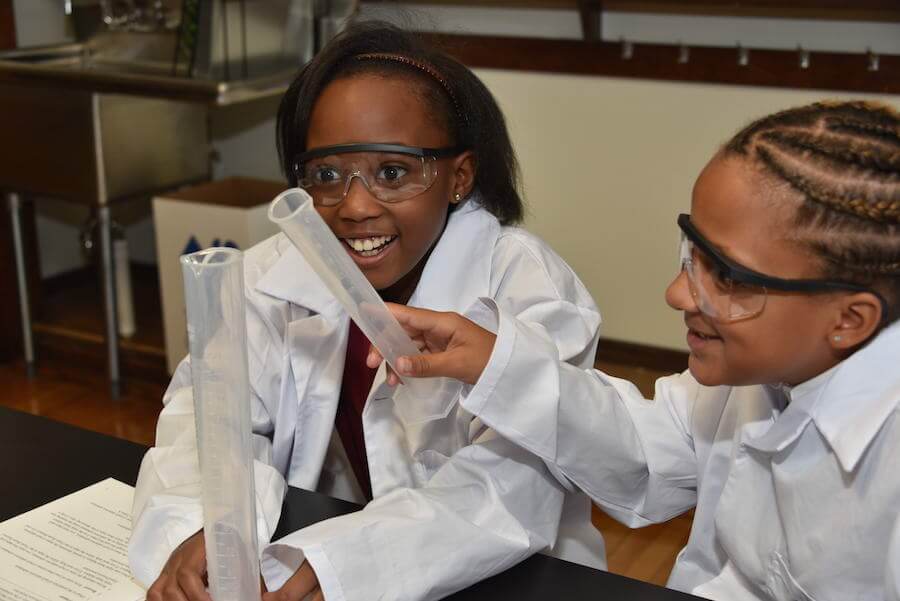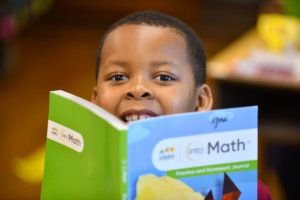Contact
Ambassador's Fund for Catholic Education
Office: 484-271-6472
Mobile: 215-870-0794
Apply Now!
Drexel Neumann Academy
Chester, Pa.
Grant: $75,000; Funded 2016-17 (Science); $10,000, Funded 2019-20 (Math)
Drexel Neumann Academy serves low-income students of all faiths who live in the city of Chester, an area with one of the lowest-performing school districts in Pennsylvania. School leaders determined the addition of a rigorous curriculum of increasingly challenging study of STEM (science, technology, engineering, math) disciplines would help break the cycle of poverty and violence for their students. They concluded that a demanding science program would equip their students with solid preparation for a quality high school education, workplace opportunities . . . and prospects for a better life. Three years later, they looked to match their science aspirations with increased math competencies and searched for answers in new programming.

With our $75,000 grant in 2016-17, plus additional sources, Drexel Neumann Academy purchased the LabLearner science education system for PreK through eighth grade. The package consists of research-grade lab equipment, furniture, storage, curriculum integration, and teacher training. Each classroom teacher “team teaches” with a newly hired dedicated science instructor, who assists with all lab materials, experiments, and curriculum delivery. The faculty moved to raise the bar overall for the students, from the youngest in PreK to the graduating eighth-graders. These expectations later extended to math competency, prompting a plan to improve the math curriculum for a better understanding of math concepts, unlocked higher-thinking skills, and confident problem-solving. Administrators and faculty also hoped for greater excitement for learning math, a better sense of student collaboration, and increased test scores. They saw the science-math partnership as essential to continued academic success in each discipline.

Passion and excitement for science has been more than achieved. Enthusiasm for science is high across the school, and test results are impressive. Several grades show significant year-over-year increases. Students can now access a broad array of valuable science tools and quality lessons for better learning. Looking to match science success in math, school leaders used grant funding to test drive the “Into Math” curriculum, which is published by Houghton Mifflin and the source of the school’s LabLearner curriculum. The value of that relationship was inescapable, as course materials and teaching methods would be complementary. Four months into the grant-funded pilot program, teachers were reporting positive outcomes in student collaboration, interest in math, and joy in learning. Fourth-graders were reporting higher-level math vocabulary such as “visual presentation” and “standard algorithm.” Measurements through standardized Beacon Tests and Terra Nova testing were delayed because of the pandemic-caused transition to virtual learning in the final three months of the school year. Pleased with the synergy between the LabLearner and Into Math programs, and with progress observed in multiple categories, school administrators continued beyond the grant pilot stage to fully embrace this new math curriculum.

Archdiocese of Philadelphia Office of Catholic Education
Roman Catholic High School for Boys
West Chester University Catholic Newman Center